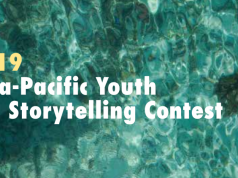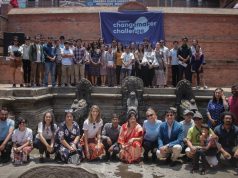Bangkok (Thailand), July 3, 2016:Â Three organisations share their experiences in making the world better.
In Bangkok last month, Lamiya Morshed, executive director of Bangladesh’™s Yunus Centre, proudly shared the success stories of Grameen Bank, the centre’s first social business, which in past years has branched out to cover many more of the underprivileged in the country.
“The zero-poverty goal can be reached, but it needs actions,†Morshed said at the “Sustainable Development Challenges in Asia†conference held in honour of the 70th anniversary of His Majesty the King’s accession to the throne.
“Poverty is not created by people, but by policies and institutions,†she added.
Words of appreciation were directed to Professor Muhammad Yunus, the founder of the centre and the bank, who said a charity dollar had only one life, but a social-business dollar, invested over and over again, had endless life.
The bank started in 1976 as a research project, kicked off with the lending to 42 people. As of April this year, the “bank for the poor†had extended loans totalling US$19 billion (670 billion baht). That money has reached 8.8 million people, and even though they lacked collateral, 98.66 per cent of the loans have been fully repaid, as the borrowers recognised the financial needs of others waiting for similar assistance.
In 1995, the bank stopped calling for money from donors. Moreover, its financial success has allowed it to venture into a second phase: creating sustainable businesses to address other needs. One of these is Grameen Shakti, which brings green energy and green jobs to rural parts of Bangladesh.
Another is Grameen Caledonian College of Nursing, which was established to address the acute shortage of nurses in the country. This college targets daughters of the bank’s members, who are offered education loans. To date, 362 students have enrolled and 127 of them have found jobs. This year, 500 more will enrol.
In the third phase, social businesses are being created in cooperation with multinational companies. One of them is Grameen Donone Danone Foods, which encourages poor women to produce yoghurt and sell it to young students in areas where malnutrition is widespread. Morshed said the business reached the break-even point last year.
BASF, a chemical company, is involved in BASF Grameen Ltd, a social business that provides technology for the production of long-lasting mosquito nets at affordable prices, to reduce the incidence of malaria and other mosquito-borne diseases.
Intel helps Grameen Intel Social Business develop user-friendly software applications to address social problems; knowledge for the proper use of fertilisers or maternal healthcare is available through the Android apps.
Morshed sees the possibility of scaling up these efforts. She suggested that these ideas should be included in school and university curricula “or people will not know about itâ€.
The bank also hosts competitions to find social-business proposals. Design Lab has been hosted every month since 2013 for those who want to embark on social businesses. A total of 5,699 projects have been presented to date and 5,674 have been approved. She was pleased that one of the ideas born from the lab was to produce affordable sanitary napkins.
Now, the bank is encouraging the offspring, aged 18-35, of the bank’s borrowers to create their own businesses. Over the past three years, about 2,000 have received financial support from the bank’s Social Business Fund. And now, these ideas have been replicated in 10 countries where Yunus Centre operates, aside from curricula in 30 universities, including the Asian Institute of Technology in Thailand.
“The 17 Sustainable Development Goals [of the United Nations] are part of our framework,†Morshed said, adding that the focus was on achieving zero poverty, zero unemployment and zero emissions.
“We don’t think social problems can’t be overcome.â€
Another idea comes from the Taiwan-based Buddhist Compassion Relief Tzu Chi Foundation. It is now extending medical services and humanitarian relief to the underprivileged in different corners of the world, relying solely on donations and volunteers.
Foundation representative Monica Sy said it was created by a nun who was saddened by the tragedy of a pregnant woman who was not admitted to a hospital to give birth because she could not deposit upfront medical expenses. Housewives were then urged to save 0.50 Taiwanese dollar every day to eventually give to the needy, including refugees in Thailand.
Sy noted that this money came from the poor for the poorest, and that grass-roots changes could have global impacts.
“All gods of all regions teach us to put all teachings to action … The 17 SD Goals are very easy and achievable, through loving and caring for all human beings,†she said.
MR Disnadda Diskul, chairman of the Mae Fah Luang Foundation, said the world was faced with three main challenges: greed at the individual level, growth – the dream of both governments and the business sector – and lack of governance.
In a way, Mae Fah Luang succeeded in reviving the forests in Chiang Rai region because it was able to introduce new ways of sustainable income for residents in the area. Coffee and macadamia nuts have taken the place of opium, while farmers are encouraged to become entrepreneurs while preserving the forests.
His Majesty’s sufficiency philosophy is also fully implemented to encourage them to make more money without accumulating debt. With external help from Ikea, Tokyo University and GIZ, a German company that specialises in international development, some local products are now going to markets overseas.
“When people have enough income, they no longer encroach on the forests,†Disnadda said. After years of the programme, more of the farmers’ children are able to go to vocational schools and universities.
“Sustainable development can be implemented anywhere, not just Thailand,†he said, adding this concept is being exported to Myanmar and Laos.
“The world is heading to a tipping point, on the verge of collapse. Mother Earth is not compromising and is holding our children as hostages.â€







